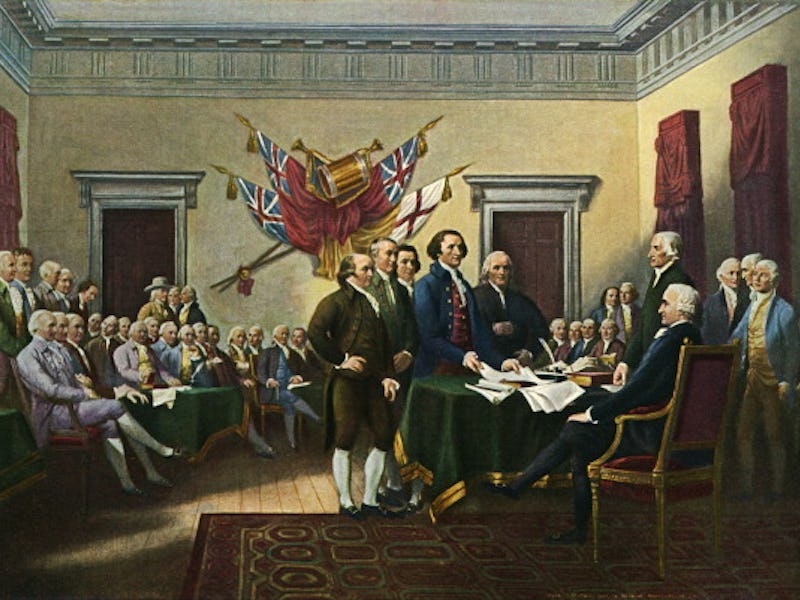America Will Go 30 Years Without Electing a President With a Science Background
Bemoaning the lack of scientists in American politics on Presidents Day.

American politicians’ lack of reverence for science is well known and oft-bemoaned. But our lack of political scientists is often overlooked and equally dramatic. America is almost singular in its reluctance to elect a scientifically educated head of state. And, yes, that makes us unusual.
President Hu Jintao of China was trained as a hydraulic engineer, while German Chancellor Angela Merkel is a former researcher scientist with a doctorate in physical chemistry. The only remaining presidential candidate with scientific bona fides is Ben Carson, who will not win and has made a strange habit of position himself as far away from the scientific establishment as currently possible. Carson, for instance, does not believe in evolution.
The relatively science-friendly Democratic candidates both have degrees in political science.
It has been posited by no less than Temple University mathematician John Allen Paulos that Americans have long dismissed scientists and mathematicians as elitist because scientific conclusions often conflict with the religious and cultural beliefs of the body politic. This makes sense up to a point, but it points the finger squarely at American politics rather than at both American politics and American science. Angela Merkel received her doctorate at 32, having taken time out of academia. By American standards she was relatively efficient about the whole thing. A long time in Germany is average in America.
While no scientist himself, President Obama has always been vocal about his support for the sciences.
It wasn’t always this way. For over two decades, Jefferson was the president of the premier scientific organization of his era, the American Philosophical Society. He made time away from politics to invent the swivel chair and the polygraph, and he even managed to deliver a formal research paper on paleontology while serving as vice president.
Herbert Hoover and Jimmy Carter were both engineers, and James Garfield developed a trapezoid proof of the Pythagorean theorem. John Quincy Adams was an amateur astronomer who established what is now the U.S. Naval Observatory, while Abraham Lincoln is the only U.S. president to ever hold a patent.
President Theodore Roosevelt riding a moose.
Big Bull Moose himself, Theodore Roosevelt, was named the “most-science friendly” president by the Union of Concerned Scientists. Considered a “citizen scientist,” Roosevelt helped collect (“collect” being a gentle euphemism) 11,000 animal specimens from Africa, was a published ornithologist, and took part in a scientific expedition that mapped 1,000 miles of the Amazon River.
Today, we have Democratic presidential candidates who believe and support the sciences but no candidate who actually engages in scientific endeavors. Of the 435 members of the House, there is one chemist, one microbiologist, six engineers, and 22 people with medical training. No matter how many times Rep. Jim Himes tries, it doesn’t look like Congress is going to make Darwin Day a thing anytime soon.
As it stands, STEM education doesn’t lead to public engagement — and that’s unlikely to change anytime soon. Still, we can hold out hope for the science wildcards. Elon Musk has already earned the support of Stephen Colbert. Unfortunately, Musk isn’t from around here.